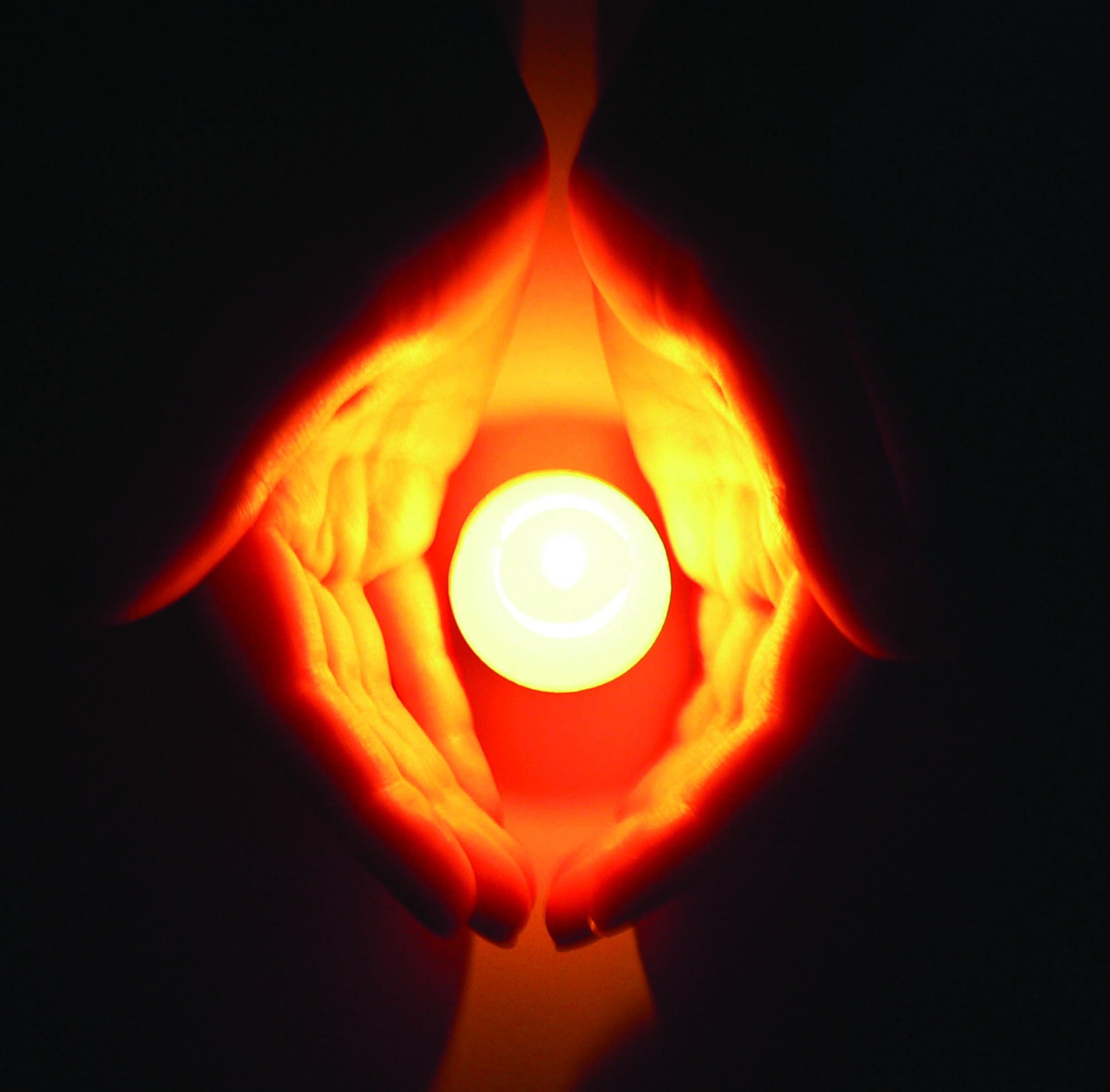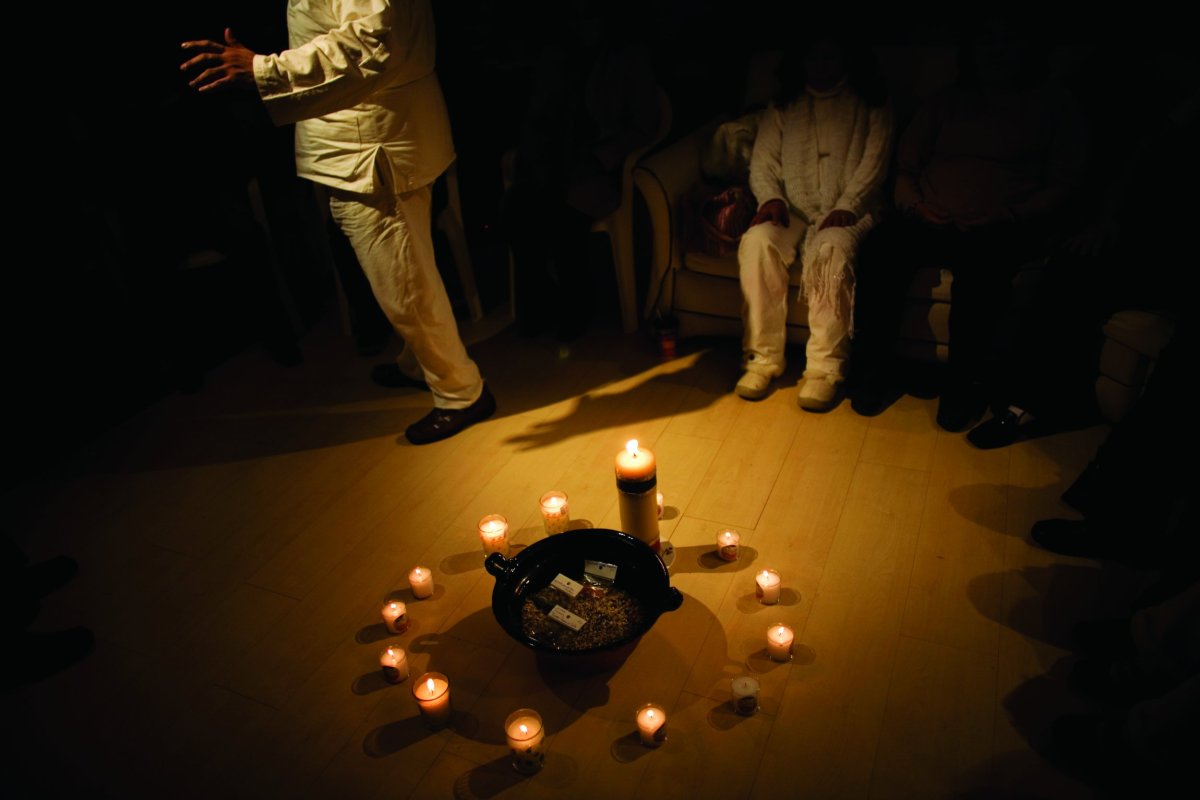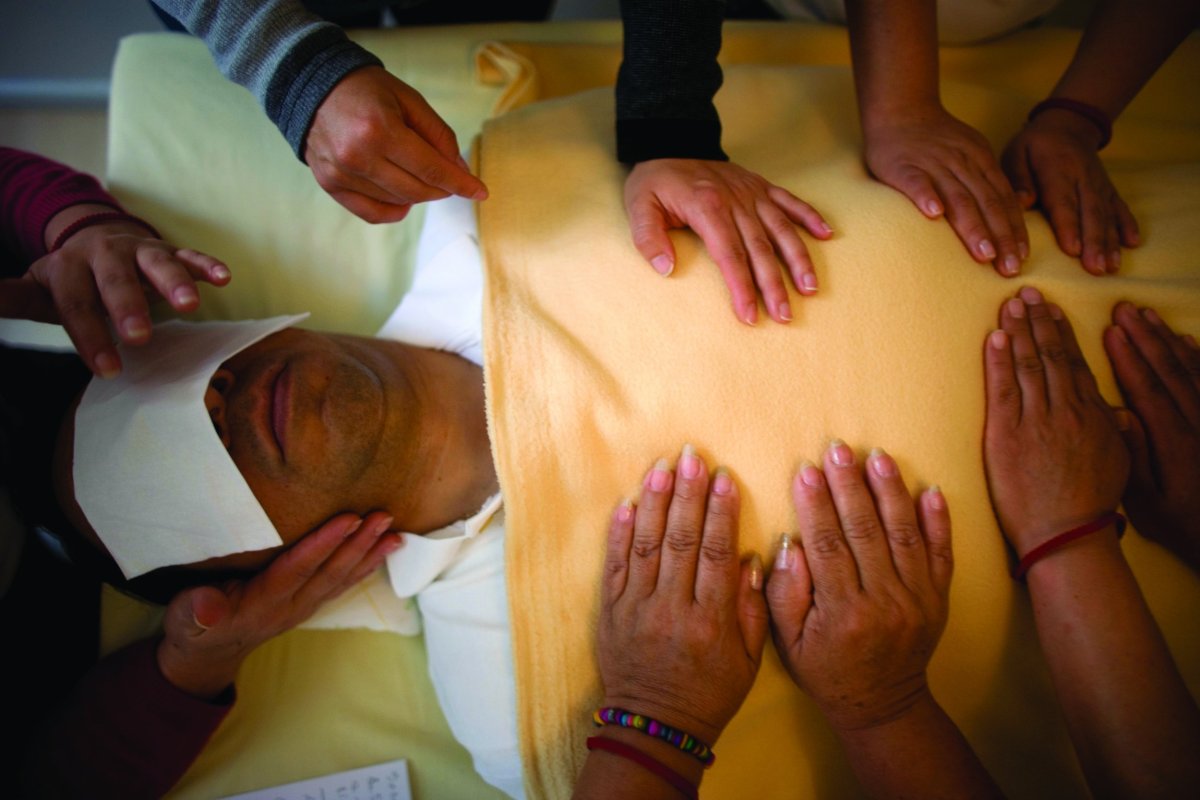
This article, by Issue Editor Trevor Courneen and excerpted from Newsweek's Special Edition, Spiritual Living, The Secret to Peace and Happiness, explores the power of Reiki and of an open mind.
Hands are, deceptively, the most essential weapon at a doctor's disposal. Whether they're handling a scalpel, administering a vaccination or setting a broken bone, a doctor's hands are a vital part of any Western medical practice. But some believe a skilled set of hands are all you need to heal a major malady—no instruments required. Reiki, a Japanese form of spiritual medicine developed by Mikao Usui in the early 20th century, employs the hands to transfer energy with perceived healing qualities into the bodies of the ailing.
For those who willingly receive the energy, results are hard to deny, anecdotal though they may be. The International Center for Reiki Healing website boasts an extensive section of testimonials, with individuals from all across the globe sharing stories of having benefited from Reiki for conditions varying in severity from uncomfortable to seemingly insurmountable. One supporter recounts having an abscessed tooth cured by the method, saving her the pain of a root canal. Others claim to have had cancer cured by distant Reiki, a form where non-present practitioners send healing energy at scheduled intervals. Perhaps the most unlikely testimonial on the site comes from a medical doctor who describes using various versions of Reiki to heal the ovarian cyst of a patient who fearfully resisted surgery.
It's a good thing the results speak for themselves, as many practitioners of Reiki seem disinterested in singing its praises. As Reiki master William Lee Rand humbly explains, "You don't study to learn how to use Reiki—it's a gift."
Despite its near 100-year existence, Reiki remains largely unaccepted as a legitimate healing practice due to a lack of scientific support. And aside from liability packages for practitioners, you'd be hard-pressed to find insurance companies willing to cover the cost of Reiki treatments. Still, Rand has managed to establish the ever-expanding International Center for Reiki Training, one of the only recognized organizations for practitioners of Reiki. Located in Southfield, Michigan, the center provides treatment as well as courses to help individuals become healers and teachers.
"The purpose of Reiki is to provide stress reduction and relaxation, but especially healing," says Rand, specifying that the healing can be either emotional or physical. These results are what he believes allow those receiving Reiki to lead more meaningful lives. And the benefits go both ways. "The practitioner is leading a more meaningful life, too, because they're helping others," adds Rand.

At the age of 18, Rand became inspired by a booklet he read about the Rosicrucian Order, a group dedicated to studying the metaphysical aspects of the universe. "I was fascinated by the idea that people have hidden or dormant abilities—some of them quite unusual—and
if we do different exercises, we can develop those abilities and live an extraordinary life," says the Reiki practitioner. Impressed and intrigued, Rand decided to join the Rosicrucians and soon explored the spiritual sphere by dabbling in astrology, rebirth and other metaphysical practices.
After building his background in metaphysics, Rand was better equipped to comprehend the value of Reiki when he first discovered the practice. Despite his history with the unseen world, he'd never encountered anything quite like it. "I realized it was very special, and it used quite an unusual energy," he states. Rand officially began studying Reiki in 1981 but instantly realized he wasn't so much studying the practice as he was awakening it from within himself. "Unlike other practices where you study for months or years before you have any skill at all, you receive the ability immediately," he says. His latent skills unlocked, Rand spent eight years honing it and began teaching Reiki himself in 1989. Much like learning to use the technique, Rand also considers the ability to teach to be a gift. "In the teacher training, you receive an attunement, which bestows upon you the ability to do the attunement," he states. It's a self-perpetuating gift that passes from person to person, inspiring them to pass the knowledge on to others while also granting them access to the words, tools and motivation necessary to share it.

Throughout his two-plus decades of teaching the ways of Reiki, Rand can only recall one student who was unable to perform the practice. "A woman came to class, and she seemed a little reluctant to be there," he says. After receiving the attunement meant to place a student on the path of becoming a Reiki healer, the woman claimed she did not feel any differently, concluding Rand's procedure did not work. Recognizing a preventive closed-mindedness, Rand asked the woman why she came to the class. "She said, 'Well, my husband made me go.' She did not want to be there," he laughs. For Rand, this lone exception is enough to support his belief that willingness is a key aspect of undertaking Reiki. "As long as the person wants to receive the attunement and wants the ability, it comes right in," he says. "The energy respects free will—if the person doesn't want it, it's not going to force itself on them."
The numerous variations of Reiki that exist today have inspired Rand to explore the practice's potential and create his own, which he calls Holy Fire. Using the traditions of Usui Reiki as the foundation for his iteration, the Reiki master says the inspiration to create his own method began to blossom in his early years of learning the basics. "When I learned Reiki, I realized there was no limit to the quality of the energy and that it could be further refi ned and upgraded," he explains. Upon researching this philosophy, Rand discovered his sentiments were essentially shared by Mikao Usui himself. From that point forward, Rand became very open to the idea of perpetually improving the experience, feeling now that the mindset led him to creating Holy Fire Reiki.
Noting the particularly intensive qualities of Holy Fire, Rand considers his modified form of Reiki to be "higher dimensional," and this new version of the healing practice is believed to be more eff ective than the traditional style used by those at the International Center for Reiki Training. Still, the perceived success of the method has not caused Rand and his colleagues to overtly promote it or push clients into choosing it. "We just say that if people feel guided to take it, then it's right for them," he states. As far as what may guide a particular person to seek the healing of Holy Fire, Rand explains the more sensitive an individual is to their own inner state, the more likely they are to be naturally inclined toward taking the Holy Fire class. "It feels like it has a higher vibration, so when people meditate or contemplate taking Holy Fire, they feel that and they follow it," he says. Common results Rand has seen in those who experience Holy Fire are heightened feelings of joy, compassion and love. Who wouldn't want a little more of that?
Those who do want to be healed or just feel greater elation in their lives do not have to look too far. In addition to the International Center for Reiki Training, Reiki classes are cropping up all across the country, with courses offered everywhere from Tallahassee, Flordia, to Seattle, Washington. As the spiritual practice spreads, Rand's proclamation that it can be done anywhere by anyone seems to be proving out.
Looking to the future of Holy Fire, the International Center for Reiki Training and the practice of Reiki as a whole, Rand has full faith in further enhancements for effectiveness being made. The practice of Reiki, he feels, continues to demonstrate an unlimited potential for healing as well as a way of guiding itself and its practitioners toward making these improvements. Rand states, "What we're understanding is that we'll continue to be introduced to higher and more effective levels of the energy so that it will be easier for people to heal and receive benefits from it as time goes by.
Reiki isn't limited in its benefits to human beings. Our four-legged friends can also see improvements to their overall quality of life when treated by Reiki masters.
Whether Reiki is right for you is a personal choice. Given that the cynical are less likely to experience the full benefits of the healing energy at the center of the practice, perhaps it's best for those who doubt to stick with their prescriptions, or to ask their physician if there's any treatment that can help to remedy a closed mind.
This article was excerpted from Newsweek's Special Edition, Spiritual Living, The Secret to Peace and Happiness, by Issue Editor Trevor Courneen. For more about spiritual livng, pick up a copy today.

Uncommon Knowledge
Newsweek is committed to challenging conventional wisdom and finding connections in the search for common ground.
Newsweek is committed to challenging conventional wisdom and finding connections in the search for common ground.
About the writer
To read how Newsweek uses AI as a newsroom tool, Click here.








